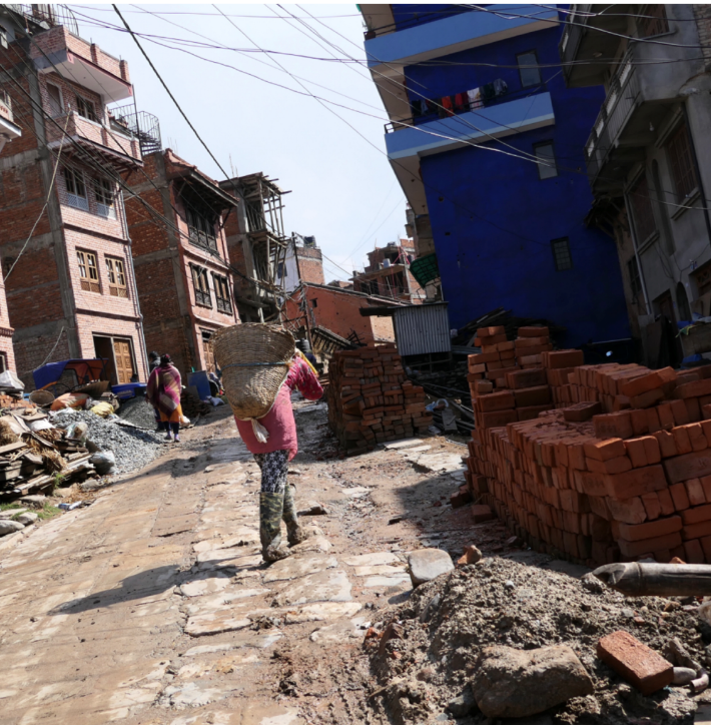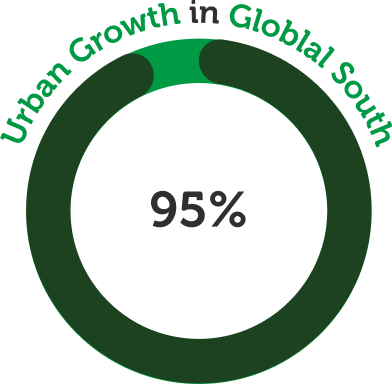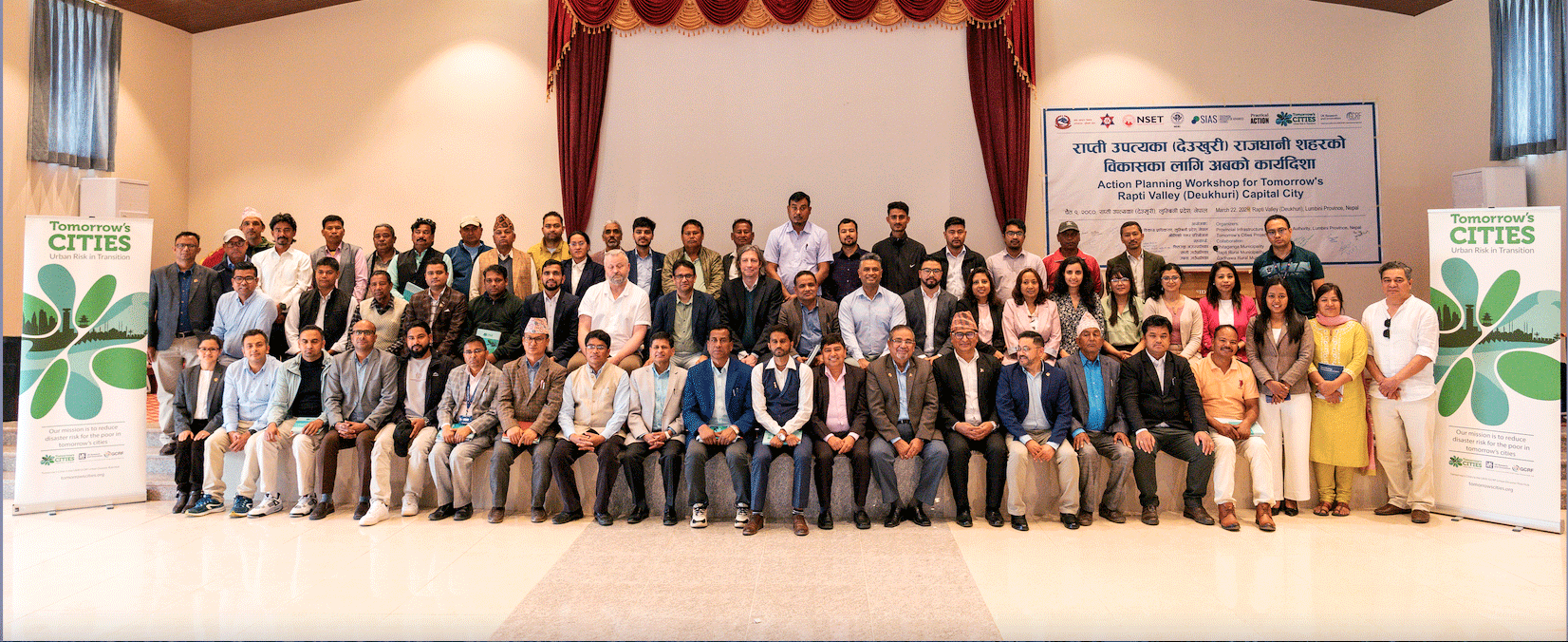
- Close
“Our mission is to reduce disaster risk for the poor in tomorrow’s cities."
Download our prospectusOur goal is to catalyse a transition from crisis management to multi-hazard, risk-informed planning and decision-making for cities in low- and middle-income countries. Initially funded by the UK Research and Innovation (UKRI) Global Challenges Research Fund (GCRF) as one of 12 Hubs under the UKRI GCRF Hubs initiative, this project aligns with the UK AID strategy, placing research at the heart of efforts to achieve the United Nations’ Sustainable Development Goals (SDGs).
Tomorrow’s Cities is a peer-led initiative managed by University College London and the University of Edinburgh. Our decentralised leadership includes urban practitioners and policymakers, community leaders, and in-city research experts from across Africa, Asia, Latin America, the Middle East, and Europe. We provide new partners with training and facilitation to deploy the TCDSE independently and offer stand-alone capacity to lead deployment when required.




Urbanisation, a Global Challenge.
The world has been urbanising rapidly. If in 1950, only 30 per cent of the world’s population lived in urban areas, currently, around 4.4 billion people, 56% of the global population, reside in cities. Projections indicate this pattern will persist, and by 2050, the urban population will more than double its current figure, encompassing nearly 7 out of every 10 people. 95% of this growth is anticipated to occur in the Global South.


Time Limited Opportunity to change the future.
Disaster Risk 2024-2050
-

14.6 m deaths
due to climate change effects.
-

USD 6.8 bn
in average annual damages.
-

x2
more people exposed to earthquakes.
Marginalised Communities
-

90%
of people in urban areas in low-income countires live in unsafe, exposed housing.
-

325 m
people could reside in the 49 most exposed countires by 2030.
-

60%
expected to be urbanised is not yet built.
Tomorrow’s Cities can support risk sensitive planning in your city by:
- Generating Action Plans to improve institutional capability, acting now to build risk out of urban growth.
- Conducting multi-hazard risk and climate change analyses for future development using state-of-the-art science and best available data.
- Assessing the future consequences of urban development decisions, including a broad array of possible impacts from natural hazards.
- Supporting an integrated approach to urban planning by bringing together local actors and policy makers from across different agencies/sectors.
- Raising public awareness and engagement in the decisions and trade-offs between urban growth, planning, risk and resilience.
- Strengthening technical capacity within local, city, and national agencies to sustain lessons learned towards the future.
- Web-based, open-access visualisation and analysis tools available without specific software or technical knowledge.

